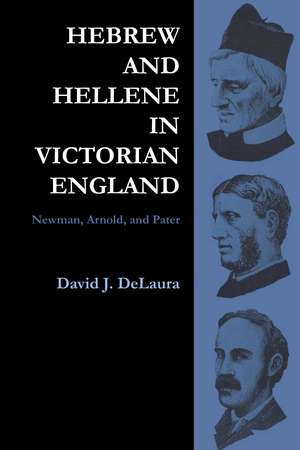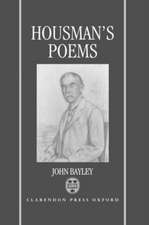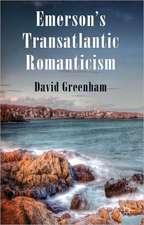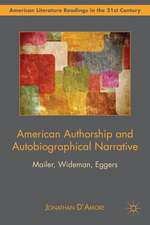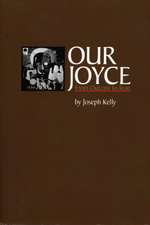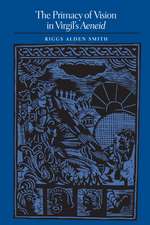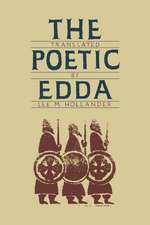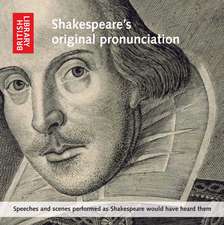Hebrew and Hellene in Victorian England: Newman, Arnold, and Pater
Autor David DeLauraen Limba Engleză Paperback – 1969
DeLaura seeks to define the mechanics of the process by which the conservative religious humanism of Newman could be exploited in the fluid, relativistic, and "aesthetic" humanism of Pater. The careers of Arnold and Pater are viewed as a continuing effort to reconcile the opposing forces of one of the central modern myths, the great cultural struggle between religious and secular values—Arnold's Hebraism and Hellenism.
DeLaura traces this important movement in nineteenth-century culture by studying the development of key phrases and ideas in the writings of the three men: the secularization of Newman's ideal of "inwardness" in Arnold's "criticism" and "culture" and in Pater's "impassioned contemplation"; the shared emphasis on an elite culture; the growing tendency to identify culture with the functions of traditional religion.
Newman, as the supreme apologist of both religious orthodoxy and the older Oxonian tradition, offered a rich arsenal to the defenders of a literary culture increasingly threatened by the utilitarian spirit (!nd by a rising scientific naturalism. Moreover, with the appearance of his Apologia in 1864, the "mystery" and the "miracle" of Newman's personality intrigued a new literary generation.
In Hebrew and Hellene DeLaura looks beyond the debates of the Late Victorians, the immediate inheritors of this legacy, to the continuing twentieth-century discussion of the nature of literature, its place in the humanizing process, and its role in a science-dominated civilization. He finds the problems faced by Pater, Arnold, and Newman—and some of their solutions—surprisingly relevant to unfinished contemporary debate.
Preț: 293.20 lei
Nou
Puncte Express: 440
Preț estimativ în valută:
56.20€ • 58.99$ • 46.35£
56.20€ • 58.99$ • 46.35£
Carte tipărită la comandă
Livrare economică 23 ianuarie-06 februarie 25
Preluare comenzi: 021 569.72.76
Specificații
ISBN-13: 9780292768604
ISBN-10: 0292768605
Pagini: 396
Dimensiuni: 152 x 229 x 27 mm
Greutate: 0.45 kg
Editura: University of Texas Press
Colecția University of Texas Press
ISBN-10: 0292768605
Pagini: 396
Dimensiuni: 152 x 229 x 27 mm
Greutate: 0.45 kg
Editura: University of Texas Press
Colecția University of Texas Press
Notă biografică
David J. DeLaura (1930–2005) was Professor of English at the University of Texas at Austin.
Cuprins
- Acknowledgments
- Introduction
- Abbreviations
- Arnold and Newman: Humanism and the Oxford Tradition
- Part I. The Oxford Sentiment
- Chapter 1. The Oriel Inheritance
- Chapter 2. The Quarrel of Reason and Faith
- Chapter 3. The Onslaught on the Philistines
- Chapter 4. Newman and the Religion of Culture
- Part II. The Religion of the Future
- Chapter 5. Development and the Zeitgeist
- Chapter 6. Literature and Dogma
- Chapter 7. Catholicism and the Future of Religion
- Chapter 8. Newman and the Future of Poetry
- Chapter 9. Newman and the Center of the Arnoldian Vision
- Part I. The Oxford Sentiment
- Arnold, Pater, and the Dialectic of Hebraism and Hellenism
- Part I. The Scarce Remediable Cleavage
- Chapter 10. The Dialectical Impulse
- Chapter 11. The Hellenism of Arnold and Pater
- Chapter 12. The Sources
- Part II. Arnold, Pater, and the Reinstatement of Man
- Chapter 13. “Coleridge” and the Higher Morality
- Chapter 14. “Winckelmann” and Pagan Religious Sentiment
- Chapter 15. Arnold, Pater, and the Supreme, Artistic View of Life
- Chapter 16. The Renaissance
- Chapter 17. Arnold, Pater, and the Complete Religion of the Greeks
- Part III. Pater and the Third Condition of Humanity
- Chapter 18. Toward Marius: Aesthetic Worship
- Chapter 19. Marius and the Necessity of Religion
- Chapter 20. Gaston and the Lower Pantheism
- Chapter 21. Plato and Pater’s Double Vision
- Part I. The Scarce Remediable Cleavage
- Pater and Newman: The Road to the Nineties
- Chapter 22. Newman and the Rhetoric of Aestheticism
- Chapter 23. Newman and the Theology of Marius
- Chapter 24. The “Style” of Humanism
- Chapter 25. Newman, Arnold, Pater, and the Future
- Appendix I
- Appendix II
- Bibliography
- Index
Descriere
This book explores the intellectual and personal relations among John Henry Newman, Matthew Arnold, and Walter Pater, three figures important in the development of nineteenth-century English thought and culture.
